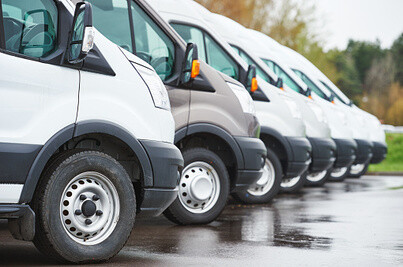Resultant improvements in cost savings, efficiencies and scale to boost competitiveness of both automakers, notes Frost & Sullivan

Santa Clara, Calif. – January 18, 2019—The recently announced partnership between Ford and Volkswagen in the commercial vans and medium pickup trucks arena served to highlight the strong global demand that both companies foresee in these two segments. The partnership was made public on the sidelines of the just concluded North American International Auto Show (NAIAS) 2019, in Detroit. It marks the first step in a partnership that seeks to leverage the complementary strengths of both automotive giants in a bid to boost their competitiveness.
“The agreement would provide scale and efficiency advantages in the commercial vehicle market, which has relatively lower volumes compared to the passenger vehicle market,” noted Veerender Kaul, Global Vice President—Commercial Mobility at Frost & Sullivan. “The two companies could save hundreds of millions of dollars in product development costs, thereby improving the efficiency of deployed capital and assets. Additional savings will come from cost reductions in purchasing and manufacturing, further improving margins and free cash flow.”
According to the terms of the agreement, Ford will build medium sized pickups for both companies, and will engineer and build the larger commercial vans, while VW will build a city van. Interestingly, Ford’s F-Series pickup, its most vital asset in the US market, will not be part of the partnership. The first products resulting from the alliance are scheduled to appear in the market in 2022.
In addition, Volkswagen and Ford have indicated that they are exploring further possibilities for collaboration in connectivity, autonomous driving, mobility, and powertrain electrification. The companies have already signed a memorandum of understanding to investigate potential opportunities in these areas and are working to align on strategy.
Both automakers will be hoping to draw on their respective competencies to accelerate innovation and growth. While VW has strong capabilities in electric vehicle technology, Ford has signaled its intent to look to the future by investing $4 billion in autonomous driving, including the $1 billion investment made in artificial intelligence startup Argo AI, in 2017.
“It is likely that Ford and VW have been discussing collaboration on connected, autonomous, shared mobility and electrification strategies (CASE) through 2018,” remarked Mark Fitzgerald, Mobility Consultant at Frost and Sullivan. “We are unlikely to see the results of an alliance on CASE technologies until the next-generation of vehicles are launched in the 2022-2024 timeline.”
About Frost & Sullivan
Frost & Sullivan, the Growth Partnership Company, works in collaboration with clients to leverage visionary innovation that addresses the global challenges and related growth opportunities that will make or break today’s market participants. For more than 50 years, we have been developing growth strategies for the global 1000, emerging businesses, the public sector and the investment community. Contact us:
Contact:
Kristi Cekani
Corporate Communications – Frost & Sullivan, Europe
P: +39 (0)2 4851 6133



